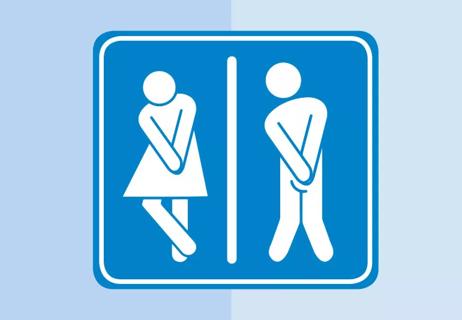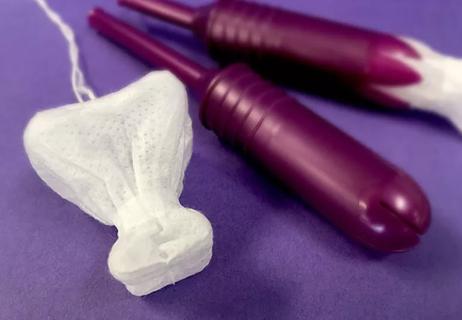Before you run out and buy this specialty underwear, there are treatment options to try first, like pelvic floor therapy and medication

If bladder leakage is affecting your quality of life, you might feel like you’re all alone. But it’s more common than you might realize.
Advertisement
Cleveland Clinic is a non-profit academic medical center. Advertising on our site helps support our mission. We do not endorse non-Cleveland Clinic products or services. Policy
An estimated 33 million Americans experience some type of incontinence. And if it’s happening to you, here’s something else important to know: You have options.
Special types of underwear for incontinence can help you take back control, though there are a few important factors to consider — and there are other options to look into first.
To figure out the best course of action, you need to first determine what kind of incontinence issues you’re dealing with. There are two main types: stress incontinence and urge incontinence.
Stress incontinence happens when there’s extra pressure on your bladder and your weakened or damaged muscles can’t adapt. Stress incontinence is more common in women and can be made worse by childbirth. In men, it’s typically only seen after having prostate surgery.
“This leakage can happen when you cough, sneeze, exercise or during other types of movements,” says certified nurse practitioner Natalie Weigand, CNP, who specializes in urogynecology and pelvic reconstructive surgery. “It’s essentially the inability of the urethral channel to provide enough resistance when the pressure in your belly goes up.”
Then, there’s urge incontinence, which is a symptom of an overactive bladder. As you’ve aged, you may have developed a general inability to control the release of urine. With urge incontinence, it’s common to have sudden urges to go to the bathroom but not get there in time to avoid leakage.
Advertisement
“It’s sometimes seen in people who have blockage from their prostate,” Weigand says, “but it can happen to anyone, for any reason.”
Many people seek help when they begin to frequently feel wet or can smell urine — when it affects their quality of life. But what’s considered minimal and what should be treated? That’s up to you.
“It’s up to each individual,” Weigand affirms. “If it bothers you, it’s not normal. And if it bothers you, seek treatment.”
To find the best solution, it’s important to discuss the causes of your incontinence and the severity of the problem with a healthcare provider.
But don’t buy incontinence underwear just yet. There are so many ways to treat and even cure urinary incontinence that disposable undergarments are usually recommended only for people who have exhausted these options.
First, there are steps you can take to either avoid using incontinence underwear entirely or lessen the time you’ll need them. You can:
Your healthcare provider might talk to you about other treatment options that can further help prevent urinary leakage:
It’s also important to know that weight loss has been shown to help both stress and urge incontinence. This is, of course, not a simple solution, but if you’re already pursuing weight loss, you should know that it might help with this issue.
If other treatments don’t work for you, or if you’re dealing with leaks while you wait for those treatments to “kick in,” it may be time to try incontinence underwear. Depending on your needs, you may choose single-use undergarments that absorb leaks or pads and shields that fit inside your regular underwear.
Advertisement
Here are some of the most common options:
It’s understandable if you’re a little nervous or uncomfortable about buying incontinence underwear — but gone are the days of bulky (not to mention rudely named) “adult diapers” for dealing with leaks. These days, disposable undergarments are unassuming and unnoticeable to other people, fitting nicely beneath your clothing.
Follow these tips to boost your confidence and comfort when you’re wearing incontinence underwear:
Advertisement
Age-related incontinence is gradual and worsens slowly over time. Sudden incontinence with heavy leakage may mean something else is going on, like an infection or a neurological issue. Make an appointment with a healthcare provider to have these symptoms checked.
Advertisement

Sign up for our Health Essentials emails for expert guidance on nutrition, fitness, sleep, skin care and more.
Learn more about our editorial process.
Advertisement

Latchkey incontinence is common, but you can find relief with bladder retraining and other treatments

Exercises and medical treatments can help you regain control of your bladder

Know which drugs can affect bladder control

Exploring an available OTC option

Your tolerance decreases with age, thanks to body changes, health conditions and medications you may take

Age is the most likely reason for typical graying, but premature graying may be caused by stress, diet, smoking or autoimmune disease

Couples counseling and communication are key to addressing built-up issues and changing needs

Getting stronger, feeling better and staying active isn’t just possible — it’s doable

Even small moments of time outdoors can help reduce stress, boost mood and restore a sense of calm

A correct prescription helps your eyes see clearly — but as natural changes occur, you may need stronger or different eyeglasses

Both are medical emergencies, but they are very distinct events with different causes